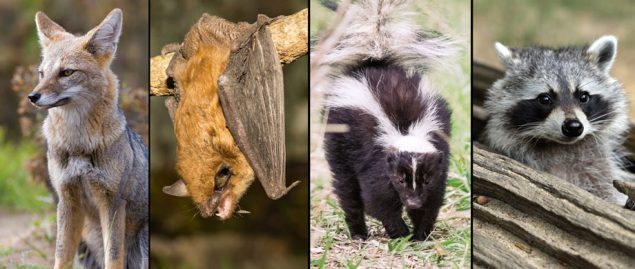Local Officials Encourage Residents To Use Caution When Handling Strays, Wild Animals
GRAND PRAIRIE – Last month, Grand Prairie found a fox they determined possibly had rabies before dying.
In the past that word – rabies – has conjured the thought of a quick death or painful shots to try and circumvent the disease.
These days, with a general disease of the month atmosphere, it is a good idea to remember there are still some diseases out there that can easily be avoided if you pay attention.
Rabies is a preventable viral disease. It is often transmitted through the bite of a rabid animal through the saliva. A person can also be affected by rabies if they have a scratch and the animal carrying rabies transmits its saliva. The rabies virus poisons the central nervous system of mammals and can cause effects in the brain and death.
Deaths From Rabies Highest In A Decade
In January it was reported that in the United States there were five Americans who died of rabies last year. That is the highest number in a decade and all the deaths were from contact with bats. However, several of those five died because they either did not know they had been infected or, in one case, the person declined rabies treatment.
That ill fox in Grand Prairie was located near the corner of S. Carrier Pkwy, and E. Sandra Ln., according to Dallas County Health and Human Services. The fox was picked up by animal control and was submitted for rabies testing. The rabies test results were inconclusive, and therefore the rabies virus could not be ruled out as a cause of death.
A press release from DCHHS said “It is possible the fox died from some other cause. Anyone that may have been bitten or scratched by this ill fox, or any other wild animal, should contact their physician immediately.”
The release went on to state “Animal contact, such as bites or scratches, may lead to exposure to rabies. Infected animals can transmit the rabies virus prior to the onset of symptoms. Simply seeing the fox is not considered an exposure.”
Dr. Philip Huang, Director of Dallas County Health and Human Services said the animals most likely to carry rabies are dogs, cats, foxes, raccoons, bats, and coyotes.
Rabies Is Easily Prevented
“Even if a feral kitten looks so sweet, these and adult feral cats can carry rabies too,” he said. “The way to tell sometimes is an animal’s behavior can become aggressive and also have excessive saliva.”
In the case when a person is bitten or has had an encounter with an animal that might have rabies, if there is a chance that saliva from that animal has gotten into the broken skin it is wise to go for treatment and ask questions later.
Infection can cause insomnia, anxiety, confusion, paralysis, salivating, hallucinations, difficulty swallowing and fear of water.
Huang assured, “The shots for rabies are not as bad as they used to be when the shots were horrible.”
State Cases of Rabies
At the state website reporting rabies cases by county, the latest numbers reported were from February 2022. At that time in Dallas County there were 49 cases of rabies in animals during that month. That included three coyotes, three raccoons, 34 dogs, eight cats and one animal listed as other.
In Ellis County, in February there were five dogs and two cats that were rabid and in Tarrant County in that same month there were 39 cases.
On Thursday, May 5, the Texas Department of State Health Services notified the City of Midlothian Animal Services division that a skunk taken from the Brandi Ridge Subdivision on May 2, 2022, tested positive for rabies.
Early last week a stray cat in Denton County tested positive for rabies in the city of Krum a public health official announced.
“Rabies is around,” Huang concluded. “Remember to be careful with wild animals.”
Public health officials recommend the following precautions to protect everyone from exposure to rabies:
- Report any sick or strange acting wildlife.
- Vaccinate pets and livestock.
- Vaccinate livestock with frequent human contact.
- Do not feed wildlife or stray animals and discourage them from seeking food near your home.
- Do not feed strays.
- Do not approach an unknown animal, either wild or domestic.
- Report all animal bites and any contact with bats to the Animal Services. Human rabies can be prevented with a series of shots.
- Keep garbage cans tightly covered and avoid storing food outside.
- Children should be instructed to tell an adult immediately if they were bitten or scratched by any animal.













